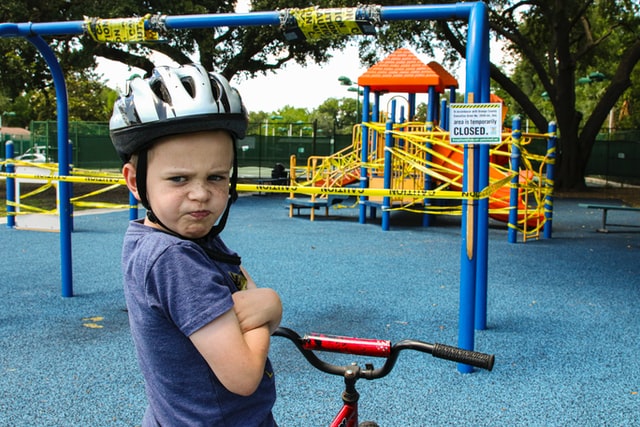Life is full of unpredictable changes. Some can be exciting and motivating, while others can lead to increased stress, poor health, and anxious feelings.
Stress is an automatic physical, mental, and emotional response to challenging events. It’s a normal part of everyone’s life, including the lives of children. They have faced many new, potentially stressful, situations during the COVID-19 pandemic. For some, there have been changes in school and activity routines, family changes with moves or parents’ career disruption, and concerns over their health or even the loss of a loved one.
Children, especially teenagers, aren’t likely to ask their parents to help them manage their stress. Sometimes, they don’t even recognize that they are feeling stressed out.
As a caregiver, you might notice something is off before they do. Helping your children manage their stress can lead to more balanced and healthier lives.
Signs of stress in children
Children aren’t mini-adults, and they may express stress in different ways than you might expect.
Here are a few signs that your children may be stressed out or could use some extra support:
- Emotional outbursts or increased irritability
Stress leads to stronger feelings of anger and irritability. Your children may have emotional outbursts that are inconsistent with their previous behavior or the current situation. - Trouble sleeping
Worries and fears seem to come out during bedtime. Stressed children may have trouble falling or staying asleep, or start having nightmares. - Withdrawing from others
Stressed children may want to spend more time alone and not interact with friends or family. - Struggles with school
Significant changes in your children’s school performance can be a sign of stress. Stress makes it harder for children to focus during the school day or when doing homework. Emotional outbursts and anger at school can cause trouble with friends and classmates. - Frequent headaches or stomachaches
When children are stressed or anxious, their bodies release the hormone cortisol into the blood. This can trigger abdominal cramps and headaches. - Increased defiance
Children under stress may feel angry or overwhelmed. They are seeking ways to get out of the situation that is causing them to feel uncomfortable. This can lead to defiant and stubborn behaviors.
Remember that children’s signs of stress can vary based on age, personality, and coping skills. The key is to watch for drastic or sudden changes in your children’s previous behaviors.
Managing Defiance
Usually, children don’t have a lot of power or control in their lives. They are told when to eat, sleep and learn; when to say please and thank you, and the list goes on. Children know how to push their parents’ buttons and get reactions, and sometimes saying no is the only control they feel they have that day.
Sometimes there is a purpose for their misbehavior, such as to gain attention or get something they want. Other times, they might just be on autopilot because they are exhausted and their brains simply aren’t able to regulate their emotions or actions anymore.
As a parent or caregiver, it can feel exhausting when your children act defiantly.
Here are a few Tips for Managing Children’s Defiant behaviors:
- Set expectations.
Children thrive on routines and set expectations. Outline examples of behaviors you will and will not tolerate. When correcting children, tell them what you want them to do rather than what not to do. For example, instead of saying, “Stop chewing with your mouth open,” try saying, “Please chew with your mouth closed.” - Act, don’t react.
When children act defiantly, the instinct to react is very human. Take a deep breath and calmly correct behavior. Don’t mirror their anger level. Remind yourself that your children are impressionable, and your words matter. - Pick your battles.
If their behavior is simply irritating but not dangerous or illegal, try to ignore it. The moment they do something positive, compliment them. Sometimes children simply want a reaction, so try to react to the positive behaviors instead of the negative. - Focus on two or three behaviors only.
Children may feel overwhelmed or inadequate if you try to correct every concerning behavior. A focused approach will get better and quicker results in improved behaviors.
Kazmo Brain Center is a counseling center in Frisco, Texas specializing in mental health and will work with you toward a happier and more satisfying position. If you or your loved ones are facing Narcissistic Personality Disorder and you think that you need help, Request an appointment at Kazmo Brain Center and we are here to help.





